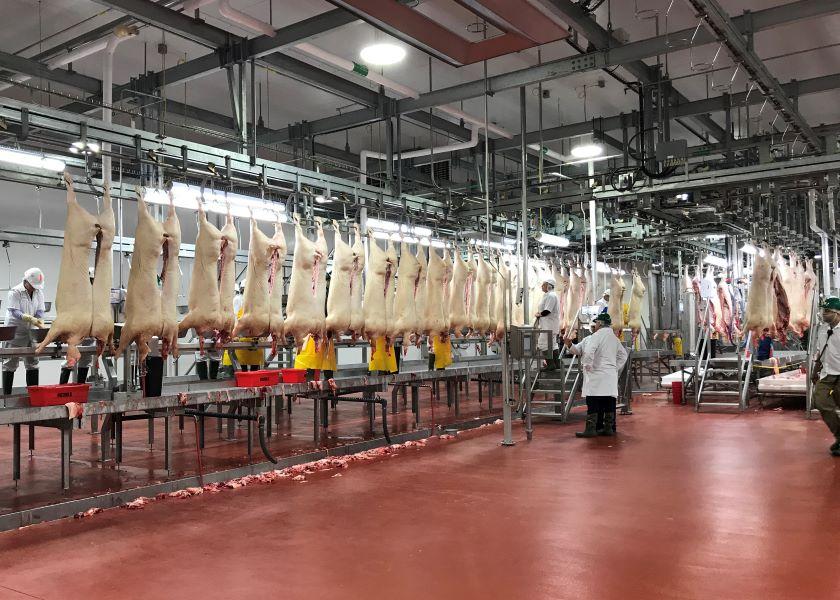FSIS Extends Time-Limited Trials at Eligible Pork Plants

USDA’s Food Safety and Inspection Service (FSIS) is extending time-limited trials until Nov. 30, allowing eligible New Swine Slaughter Inspection System (NSIS) establishments to operate at an increased line speed.
“The National Pork Producers Council (NPPC) applauds USDA’s decision to allow eligible pork harvest facilities to continue experimenting with ergonomics, automation, and crewing while maintaining line speeds that have been proven able to protect food and worker safety for over two decades,” NPPC said in a statement.
In March 2021, an order issued by the U.S. District Court for the District of Minnesota vacated the part of the USDA NSIS final rule eliminating line speed limits for participating establishments. Because of this, all NSIS establishments had to operate at line speeds not exceeding 1,106 head per hour.
In consultation with the Occupational Safety and Health Administration, FSIS developed a time-limited trial enabling NSIS establishments to experiment with ergonomics, automation and crewing to create custom work environments that will protect food and worker safety while maintaining productivity, USDA said in a release.
NSIS establishments were invited to apply to participate in a trial in November 2021. Six establishments were approved to run time-limited trials. During these trials, approved establishments were allowed to operate at an increased line speed for a period of one-year. Meanwhile, FSIS has been collecting data throughout the trial to measure the impact of increased line speeds on establishment workers.
A team of worker safety experts are studying the impact of increased line speeds on worker safety at poultry establishments. The agency was able to expand the contract to include swine establishments. The extended time-limited trials will allow the contractors to finalize their report on the swine data, enable the agency to assess the report’s findings and conclusions, and to determine future actions.
“Ensuring sufficient harvest capacity is critical to allow America’s pork producers to continue to provide wholesome pork products to consumers. This extension will allow USDA to assess a final report of the data collected during the time-limited trial and determine next steps,” NPPC said in a statement. “NPPC appreciates the extension of the trial period and will continue working with the administration and Congress towards a permanent solution.”
Read More:







